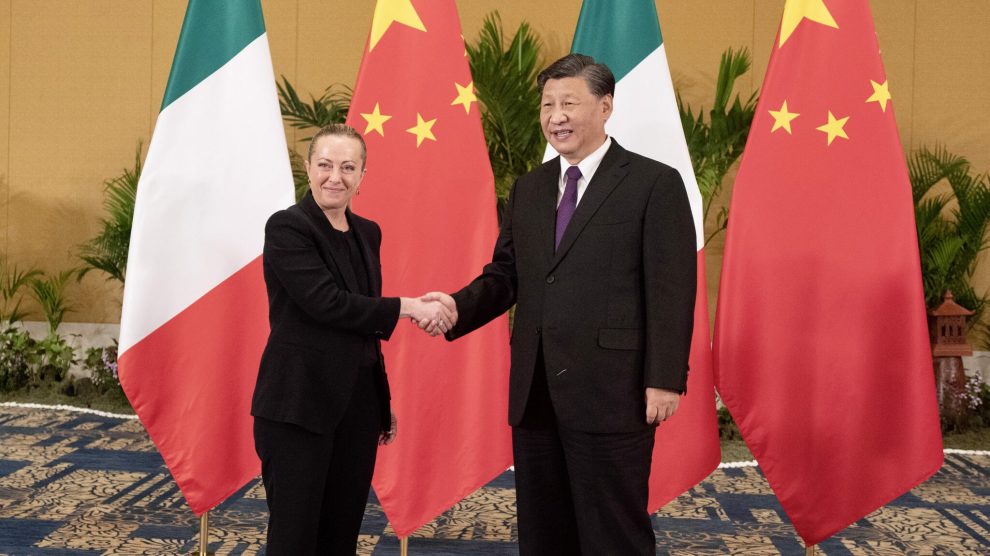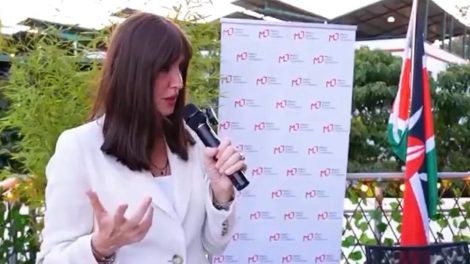Prime Minister Giorgia Meloni… leaves today for a four-day official visit to China. The visit is significant not only in the international context of the Ukraine conflict and escalating trade tensions with the European Union, but also as an opportunity for the Italian government to revitalise its strategic partnership with Beijing.
- Prime Minister Meloni’s visit is the first by an Italian leader to China in five years and the first since Italy’s withdrawal from the Belt and Road Initiative (BRI).
- Meloni will meet with Chinese President Xi Jinping and Premier Li Qiang, as well as Chen Jining, Secretary of the Shanghai Communist Party Committee.
- The visit will focus on three main objectives: strengthening political, economic and cultural relations.
- This diplomatic effort follows the recent visit of Adolfo Urso, Italy’s Minister of Economy, to Beijing. In addition, President Sergio Mattarella will visit China in October to commemorate the 700th anniversary of the death of Marco Polo.
Business at the centre. High on Meloni’s agenda will be her participation in the 20th anniversary of the strategic partnership established in 2004, during the Italy-China Business Forum. The event will be attended by CEOs of major Italian companies.
- The China-Italy partnership currently stands at around €67 billion in trade, with more than 1,600 Italian companies operating in China.
- The Italian government is in talks with Chinese carmakers with the aim of attracting a major manufacturer to Italy to boost domestic car production.
- Other areas of focus include pharmaceuticals, biomedical engineering, green technology and electric mobility.
The international scenario. Meloni’s visit operates on two tracks: the bilateral relationship and the wider international context. At the recent G7 summit hosted by Italy, member nations including the United States, Britain, France, Germany, Japan and Canada reaffirmed that while they do not seek to harm China or impede its economic growth, they will continue to protect their companies from unfair practices.
- “The Italian premier’s visit to Beijing takes place in a particularly delicate context for economic relations between the European Union and China. In recent months, the EU has adopted significant restrictive measures, imposing duties on key sectors such as the automotive sector and, more recently, biodiesel,” recalls Silvia Menegazzi, professor of International Relations and Asian Studies at Luiss.
- Thus, in this delicate mission, Meloni will have to navigate recent trade tensions while seeking to strengthen Italian-Chinese economic ties.
- She is also expected to raise China’s support for Russia in the Ukraine conflict and discuss the ongoing war in Gaza, following her meeting yesterday with Israeli Prime Minister Isaac Herzog.
The experts’ view. From a general point of view, then, Meloni’s trip to China is an important strategic-commercial opportunity for Italy to consolidate bilateral relations. However, it must be seen in a context strongly influenced by the international game being played by the European Union and, of course, the United States. This picture was underlined by Filippo Fasulo (Ispi) and Noah Barkin (Gmf/Rhodhium), voices that our sister company Formiche.net involved for a special in-depth study on the PM’s visit and on Rome-Beijing relations.
- Noah Barkin also stressed that Meloni’s balancing role with Beijing can be extremely valuable at a time when Olaf Scholz’s Germany and Emmanuel Macron’s France appear particularly weak.
- Finally, in an interview with our sister company Formiche.net, Fratelli d’Italia MP Giangiacomo Calovini, a member of the Italian delegation to the NATO Parliamentary Assembly and a member of the Chamber of Deputies’ Foreign Affairs Committee, underlined the Meloni government’s Atlanticist decision not to renew the BRI, but also the need to talk to an important partner like Beijing.





